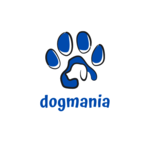Is Grain-Free Dog Food the Right Choice for Your Dog? Find Out Here
Choosing the right dog food is a critical decision for every pet owner. One of the debates in the pet nutrition world is whether grain-free dog food is beneficial or even necessary. This comprehensive guide will explore the pros and cons of grain-free dog food, helping you make an informed decision for your furry friend.
What is Grain-Free Dog Food?
Grain-free dog food is exactly what it sounds like: dog food made without grains. Traditional dog food often contains grains such as wheat, corn, and barley. Grain-free alternatives replace these with other sources of carbohydrates like potatoes, peas, and lentils. This diet aims to be more aligned with a dog's natural, ancestral diet.
The Popularity of Grain-Free Diets
Grain-free diets have surged in popularity over the past decade. This trend is driven by several factors:
- Perceived Health Benefits: Many pet owners believe grain-free diets can alleviate food allergies and sensitivities.
- Marketing Influence: Pet food companies have heavily promoted grain-free products as superior and more natural.
- Humanization of Pets: As people move towards gluten-free and low-carb diets, they often apply similar standards to their pets' diets.
Benefits of Grain-Free Dog Food
Reduced Allergies and Sensitivities
Some dogs are genuinely allergic or sensitive to grains. Symptoms can include itching, ear infections, digestive issues, and more. For these dogs, switching to a grain-free diet can alleviate these problems and improve their overall well-being.
Improved Digestion
Grain-free dog food often contains higher-quality ingredients and more natural protein sources. This can lead to better digestion and nutrient absorption, resulting in healthier stools and fewer gastrointestinal issues.
Higher Protein Content
Grain-free formulas typically have a higher protein content, as they focus more on meat and other protein sources. This can be beneficial for active dogs, working breeds, and those requiring more protein for muscle maintenance and growth.
Shinier Coat and Healthier Skin
A diet richer in high-quality proteins and fats, often found in grain-free foods, can contribute to a shinier coat and healthier skin. Essential fatty acids like omega-3 and omega-6, commonly included in these diets, play a significant role in maintaining skin health and reducing inflammation.
Potential Drawbacks of Grain-Free Dog Food
Nutritional Imbalance
One of the significant concerns with grain-free diets is the potential for nutritional imbalance. Grains provide essential nutrients, including fiber, vitamins, and minerals. Replacing grains with alternative carbohydrate sources might not always meet all of a dog's nutritional needs.
Heart Health Concerns
In recent years, there has been growing concern about a possible link between grain-free diets and canine dilated cardiomyopathy (DCM), a serious heart condition. The FDA has been investigating these potential connections, and while the exact cause remains unclear, it has raised red flags about the long-term safety of grain-free diets.
Higher Cost
Grain-free dog foods are often more expensive than their grain-inclusive counterparts. This can be a significant factor for pet owners, especially those with multiple dogs or large breeds that require substantial amounts of food.
Not Always Necessary
For many dogs, grains are not problematic and can be a valuable part of their diet. Unless your dog has a diagnosed grain allergy or sensitivity, there may be no compelling reason to switch to a grain-free diet.
Making the Right Choice for Your Dog
Consult Your Veterinarian
Before making any changes to your dog's diet, it's essential to consult with your veterinarian. They can assess your dog's specific health needs and provide personalized recommendations. Your vet can help determine if a grain-free diet is appropriate and ensure it's balanced and nutritionally complete.
Evaluate Ingredients and Quality
When choosing a grain-free dog food, pay close attention to the ingredient list. Look for high-quality protein sources, like real meat or fish, and avoid products with excessive fillers or artificial additives. Ensure that the food meets the nutritional standards set by organizations like the Association of American Feed Control Officials (AAFCO).
Monitor Your Dog’s Health
After transitioning to a grain-free diet, monitor your dog's health closely. Look for improvements in coat condition, energy levels, and digestion. Conversely, be vigilant for any signs of adverse reactions, such as changes in appetite, weight, or behavior.
Consider Your Dog’s Lifestyle
Your dog's lifestyle, activity level, and breed can influence their dietary needs. Active and working dogs may benefit more from the higher protein content in grain-free diets, while less active dogs might not require such a nutrient-dense food.
Conclusion
The decision to switch to a grain-free dog food should be based on your dog's unique health needs and lifestyle. While grain-free diets can offer benefits for some dogs, they are not a one-size-fits-all solution. By consulting with your veterinarian, evaluating the quality of the food, and monitoring your dog's health, you can make an informed choice that best supports your furry friend's overall well-being.
Grain-free or not, the most important factor is providing a balanced, nutritious diet that keeps your dog healthy and happy.



leave me your thoughts here